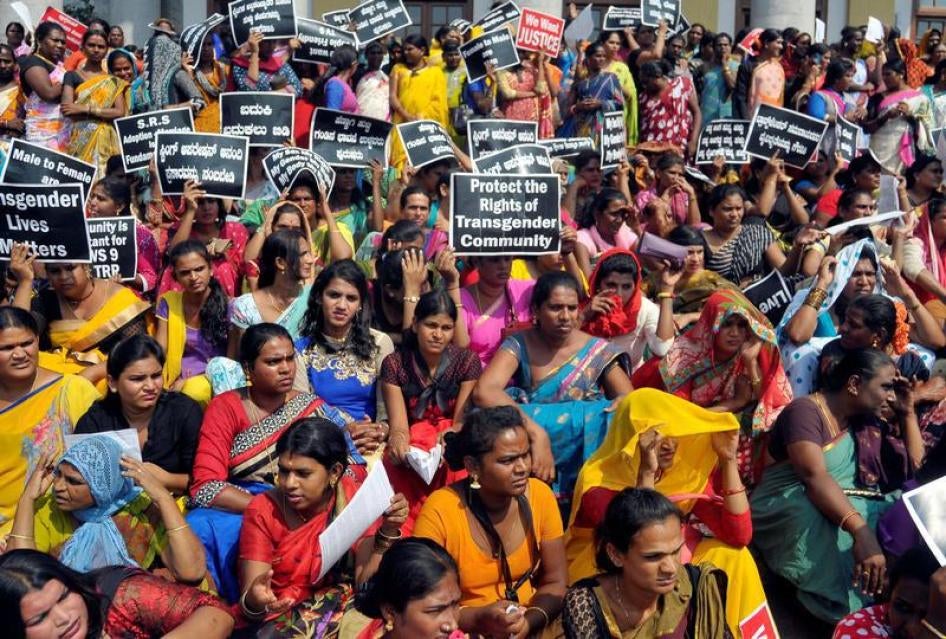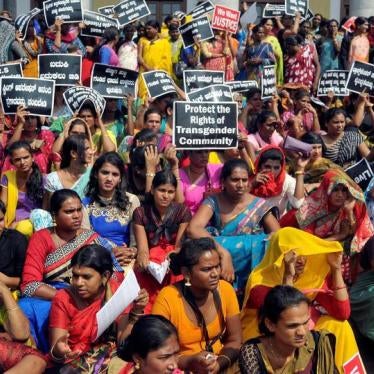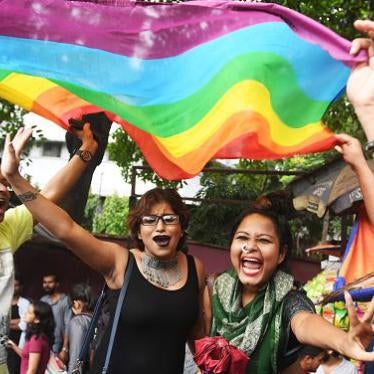India’s parliament passed a bill to protect transgender rights last week, but the new law is inadequate on several fronts. Trans activists and allied human rights groups have critiqued the various trans rights bills since the first one was introduced in 2016. In the end, lawmakers failed to consider the concerns the activists raised. As a result, India’s new law will violate the rights of trans people rather than respect and uplift long-persecuted communities.
Perhaps the most serious flaw in the new law is the procedure it mandates for legal gender recognition — the process by which trans people can change their documents to reflect their identity.
India’s new law sets up a two-step process. First, it requires an individual to apply for a “transgender certificate” from the District Magistrate where they live. This can be done on the basis of a person’s self-declared identity. Then, a certificate holder can apply for a “change in gender certificate,” which signals to authorities to change their legal gender to male or female. However, this second step requires the person to provide proof of surgery, issued by a hospital official, to the District Magistrate for a second evaluation, and the official must be “satisfied with the correctness of such certificate.”
This sets an extraordinary amount of power with one government office to arbitrate which trans people “qualify” to be recognized as who they are. It also coerces people into medical procedures they might not want — a fundamental rights violation that Indian and international jurisprudence condemns.
Indian courts have long held that trans people deserve the government’s recognition on their own terms, without mandatory intervention or discrimination.
In 2014, the Indian Supreme Court in NALSA v. India ruled that transgender people should be recognized as a third gender and enjoy all fundamental rights, while also being entitled to specific benefits in education and employment. Justice K.S. Radhakrishnan, writing for the bench, ordered that “Transgender persons’ right to decide their self-identified gender” should be recognized by state and federal authorities. The court made clear that “any insistence for [sex reassignment surgery] for declaring one’s gender is immoral and illegal.”
A Delhi High Court ruling in October 2015 laid out the intrinsic link between the right to legal gender recognition and other rights. Affirming a 19-year-old transgender man’s right to recourse against harassment by his parents and the police, Justice Siddharth Mridul wrote: “A transgender [person’s] sense or experience of gender is integral to their core personality and sense of being. Insofar as I understand the law, everyone has a fundamental right to be recognized in their chosen gender.”
In addition to violating court rulings, the new law’s provisions are also contrary to international standards for legal gender recognition. International standards and best practices — including those of multiple United Nations agencies, the World Medical Association, and the World Professional Association for Transgender Health, all call for separation of legal and medical processes.
The Office of the UN High Commissioner for Human Rights in 2015 recommended that states begin immediately “[i]ssuing legal identity documents, upon request, that reflect preferred gender, eliminating abusive preconditions, such as sterilization, forced treatment and divorce.” A 2015 report by the World Health Organization and the Asia-Pacific Transgender Network recommended that governments “[t]ake all necessary legislative, administrative, and other measures to fully recognize each person’s self-defined gender identity, with no medical requirements or discrimination on any grounds.”
The right to recognition as a person before the law is guaranteed in numerous international human rights conventions, and is a fundamental aspect of affirming the dignity and worth of each person. Legal gender recognition is also an essential element of other fundamental rights — including to privacy, to freedom of expression, to be free from arbitrary arrest, and rights related to employment, education, health, security, access to justice, and the ability to move freely.
Activists in India plan to challenge the new law on this and several other fronts.
That the law expressly prohibits discrimination against trans people in education, employment, health care, and several other spheres offers fertile ground for challenging those provisions of the law that are discriminatory. The new law also recognizes intersex people but offers them no specific protections. Momentum to protect intersex children from medically unnecessary “normalizing” surgeries, such as a 2019 ban on operations in Tamil Nadu, should guide improvements on that front as well.
Put simply, the process for recognition before the law and control over one’s own body should be separate from any medical interventions. But if an individual’s personal identity or transition process requires medical support, those services should be available and accessible.
India can — and should — do better.










